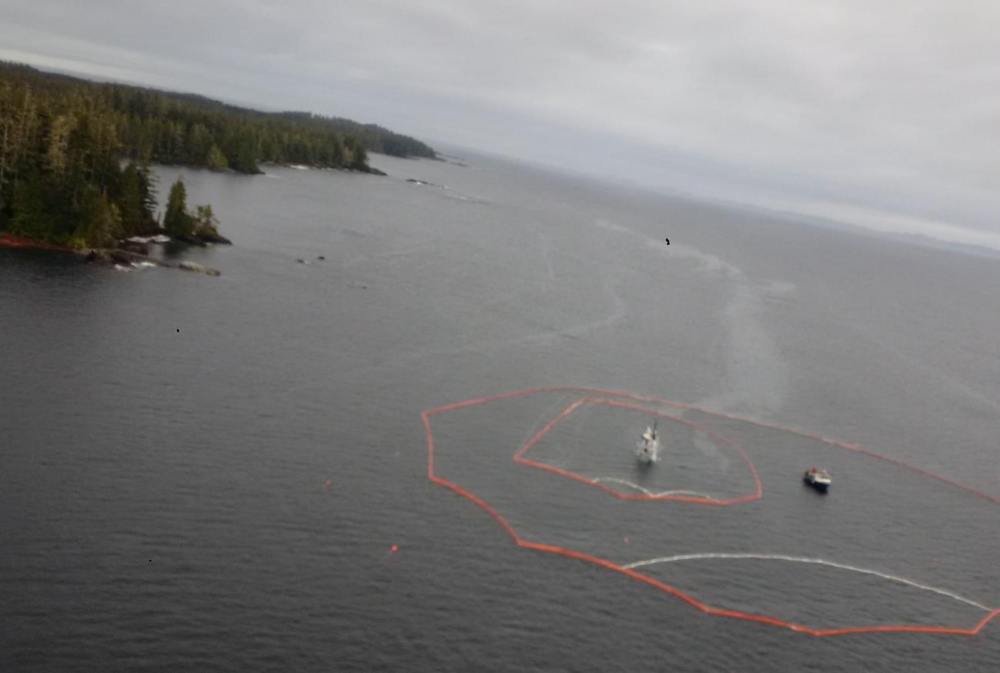
The owner of a tug and barge that grounded and spilled diesel in Canadian waters on its return from Southeast Alaska will pay about $2.2 million in fines.
The Kirby Corporation’s articulated tug barge had completed fuel deliveries in Skagway and Ketchikan and was returning to Vancouver when the crewman on watch fell asleep.
The Nathan E. Stewart grounded in the early morning hours of October 13, 2016. It spilled about 29,000 gallons of diesel and lubricants in the Seaforth Channel near Bella Bella, British Columbia.
On Tuesday, the U.S. company admitted in provincial court to environmental violations for harm to shorebirds and fish. The crewman at the helm hadn’t registered with pilotage authorities to be qualified to drive the ship in Canadian waters.
The Heiltsuk Nation criticized the fine as “a drop in the bucket” for the company.
“We both know this sentence does not represent true justice,” Marilyn Slett, the tribe’s president wrote in an open letter to the Kirby Corporation’s CEO. “True justice would mean paying for an environmental impact assessment, admitting civil liability, and working openly and honestly to address compensation and remediation for the harm caused by the spill.”
Court filings show the $2.9 million Canadian penalty represents less than 1 percent of Kirby’s annual revenue last year.
The First Nations tribe sued Kirby Corporation in 2018 alleging the spill destroyed its most productive clam beds and harmed fishing grounds and cultural sites. The civil case is ongoing.
The tribe also seeks to bolster local spill response resources as articulated tug and barges regularly transit its traditional territory to supply fuel to Southeast Alaska. ATBs are tugs that push barges from behind and are increasingly common in the industry.
In a statement, the Kirby Corporation says it admits to the facts in the settlement and would comply with the ruling.
“We sincerely regret this incident,” the company said. “And we have amended our operating procedures, training, auditing, promotion protocols and equipment to help reduce the potential for future accidents.”
The Texas-based company says it’s installed navigation alarms and enhanced crew training to help reduce the potential for future accidents.





